Inflation Fighter
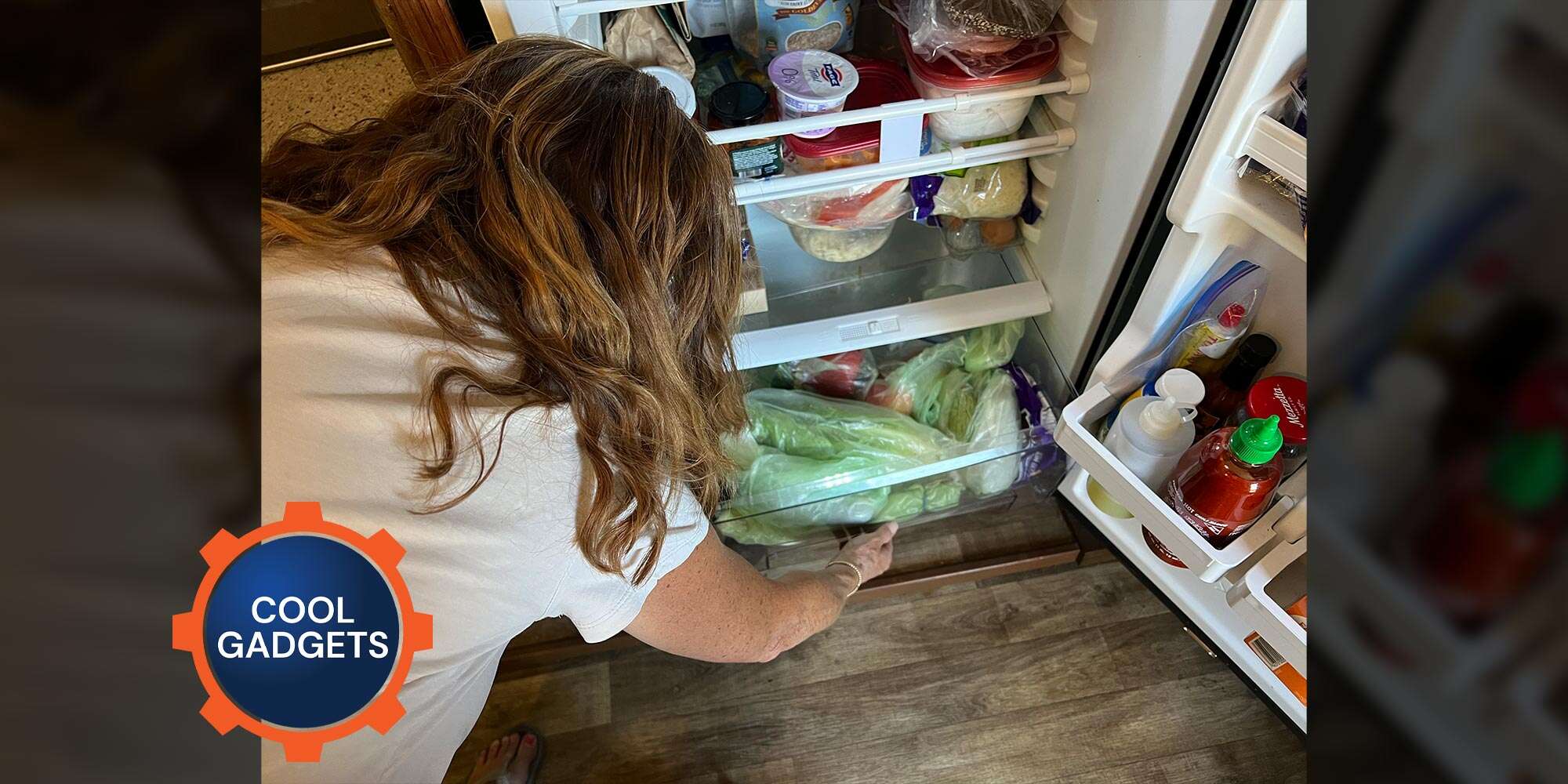
Storing fruit and vegetables seems like a simple enough proposition, but for most RVers, there is a certain amount of spoilage that translates into a waste of money and more runs to the grocery store to replenish food. The Internet is chock-full of products designed to store food, including the more common plastic bags and containers (which, at the least, may help you stay organized). Most containers, however, are bulky, taking up precious space in the smallish confines of a typical RV refrigerator.
My wife, Lynne, discovered the solution to spoiled produce many years ago — special green storage bags designed to prolong the life of fruit and vegetables. The first ones were marketed without much hype, and we were told that they were invented in Japan. Nowadays these bags are marketed under the Debbie Meyer Green Bags moniker and are readily available on the Internet (debbiemeyershop.com).
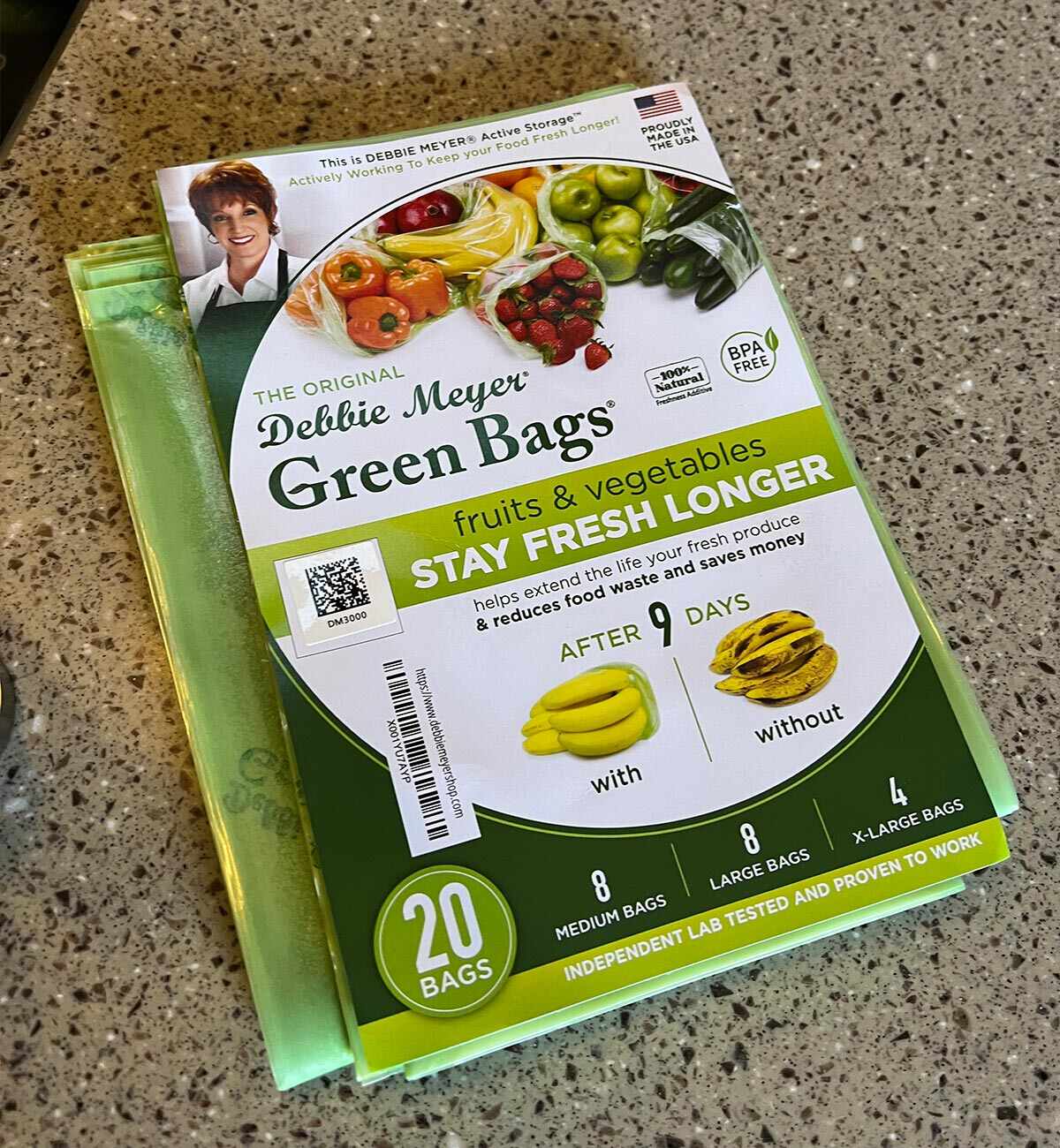
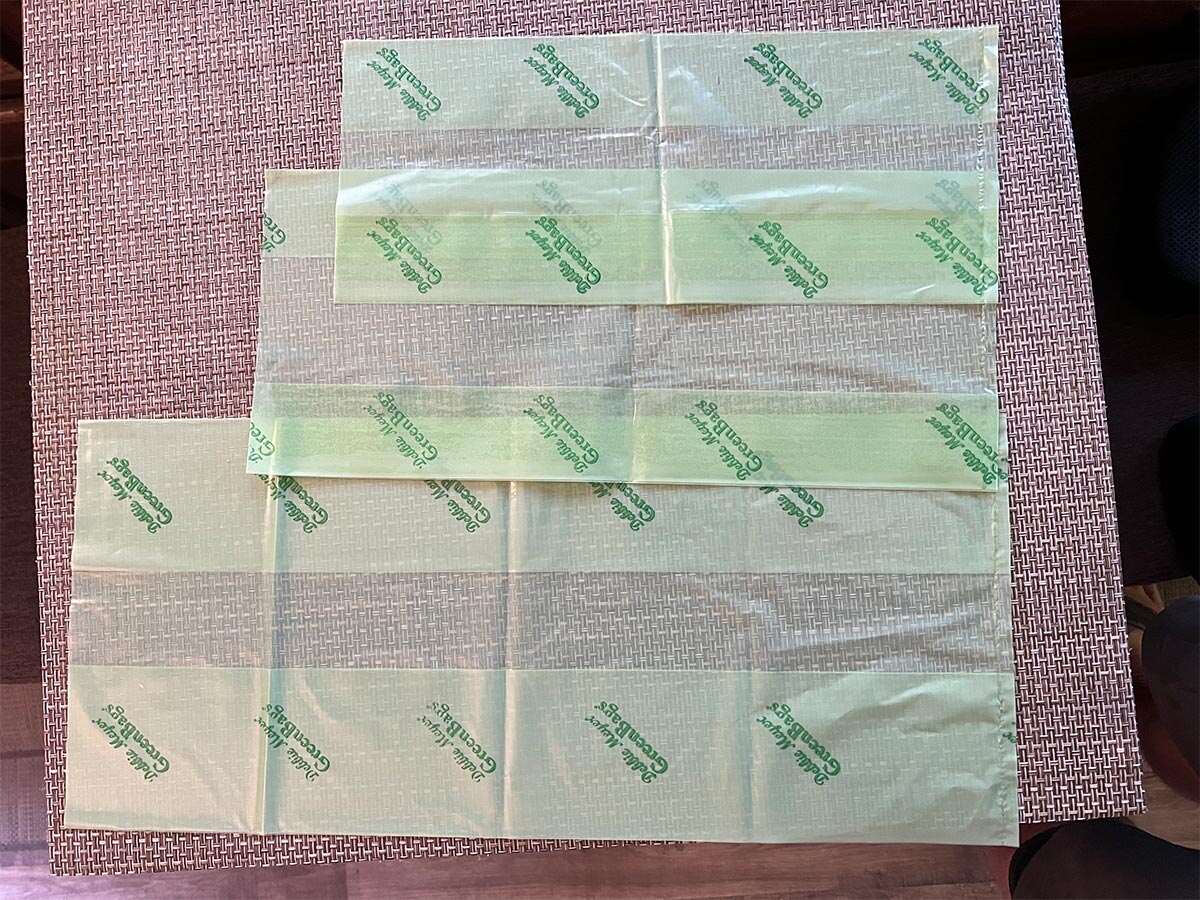
The process is quite simple. Fill a bag with one type of fruit or vegetable (don’t mix), twist the open end and fold over. You should not use twist-ties or plastic clips because they can damage the plastic. Also, the produce must be dry before placing in a bag. We’ve found that the best method is to load the produce directly from the shopping bag and wash each item before eating.
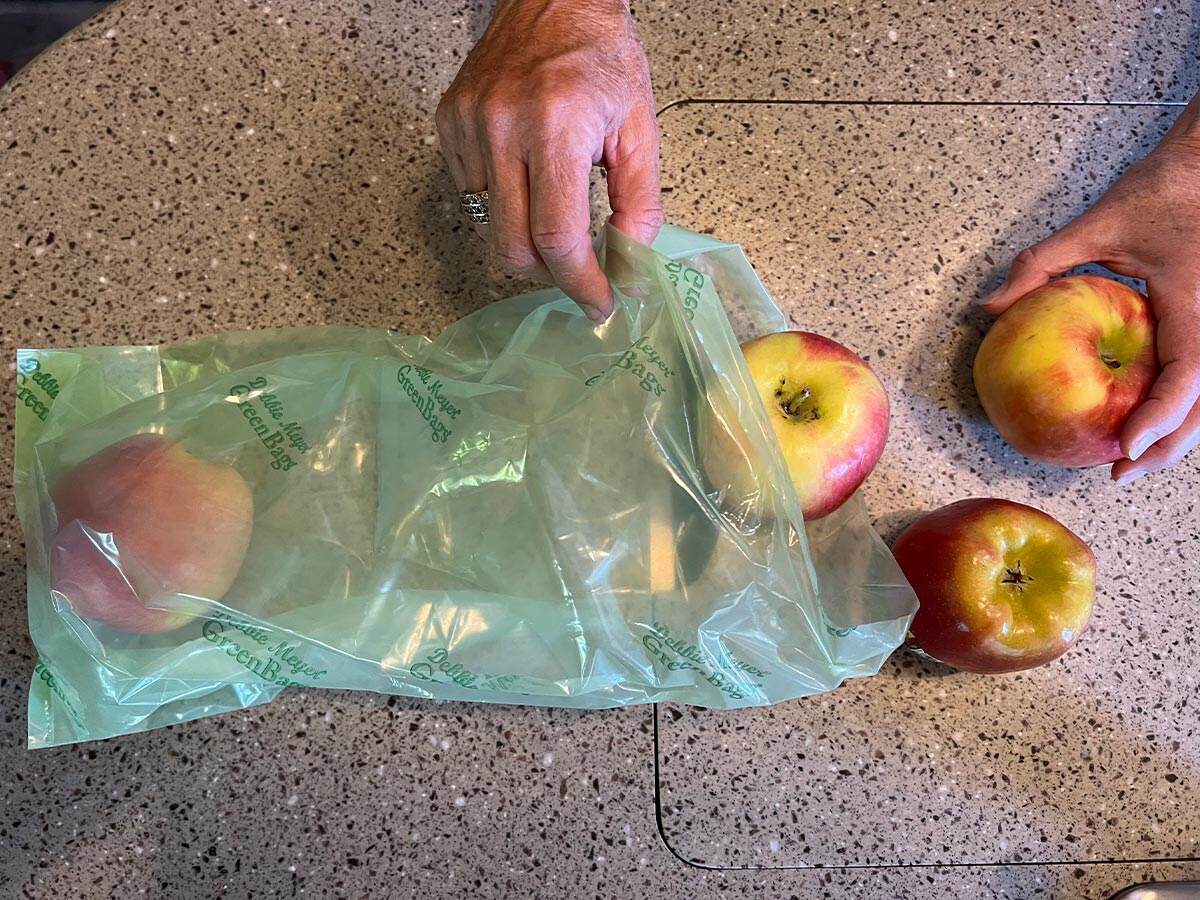
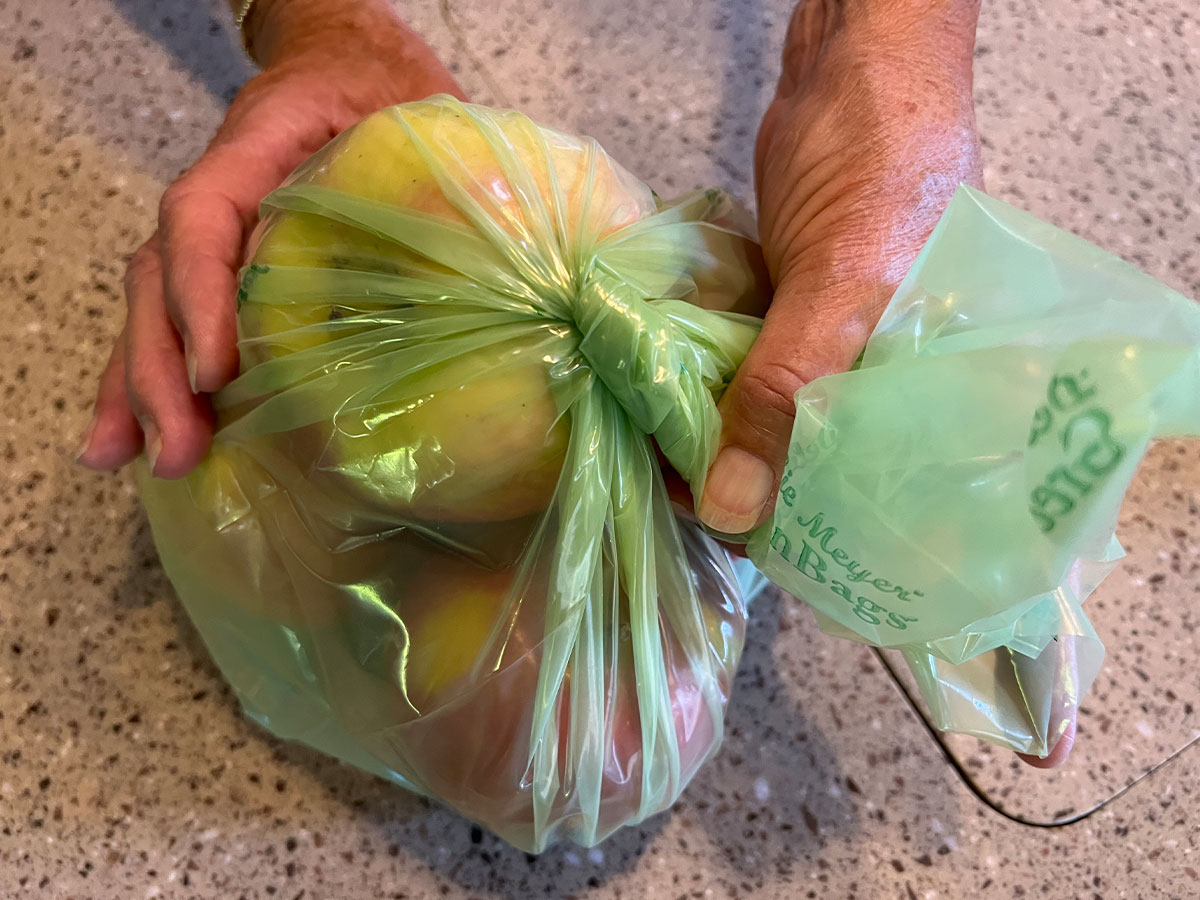
Know that the bags will naturally collect moisture and should be wiped out with a paper towel as needed. As a matter of fact, we wash the bags and place them over a cup or similar item and allow them to air dry. While the instructions on the Debbie Meyer bags suggest the bags can be used several times, we’ve had some of our bags for the better part of a year and they still work fine.
Debbie Meyer Green Bags are available in 20-, 32- and 40-bag packages; we bought the 20-bag version on Amazon for $11.99, which includes eight medium, eight large and four X-large bags. The larger bags are best for romaine lettuce, squash, cucumbers, apples and other similar size produce; the smaller bags are good for berries, etc. The company claims that bananas will last nine days, but we’ve yet to test that claim because we eat them too fast.
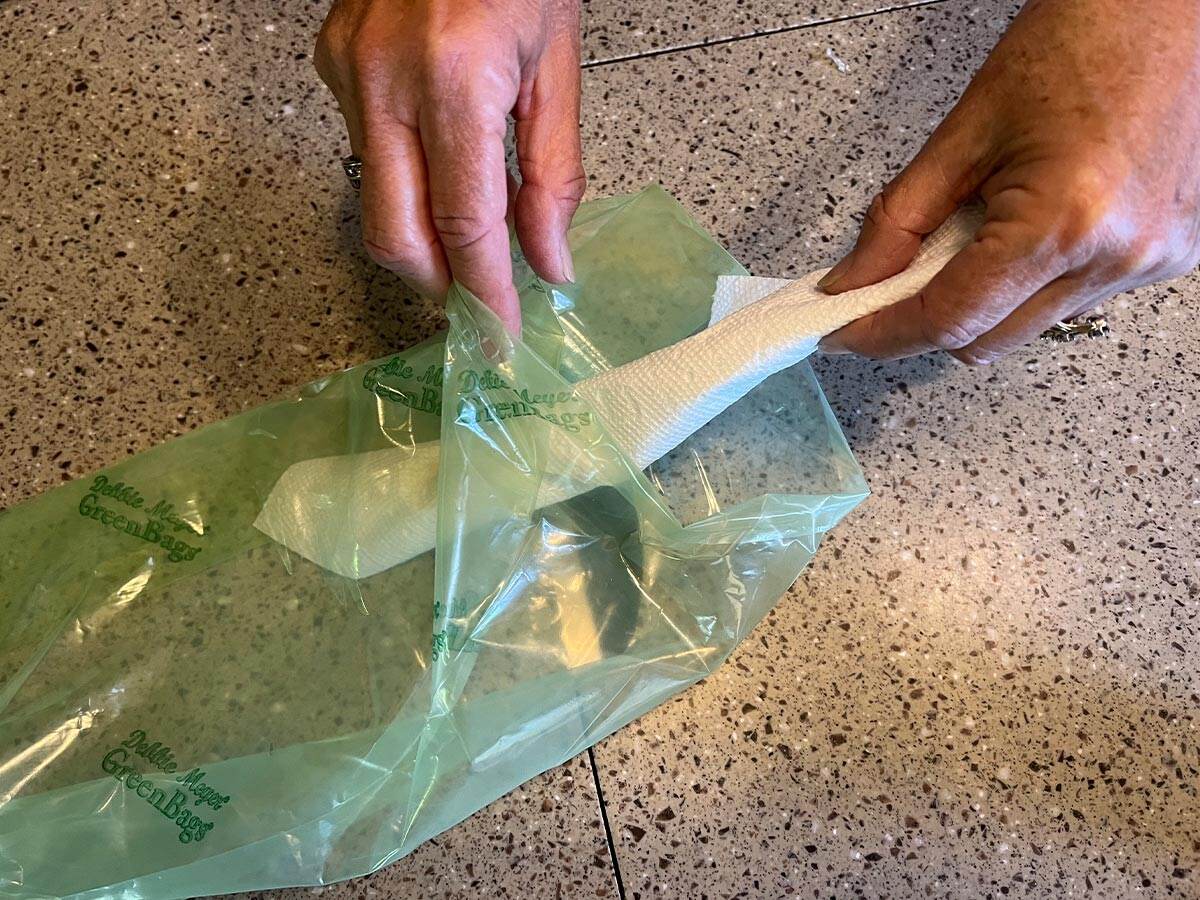
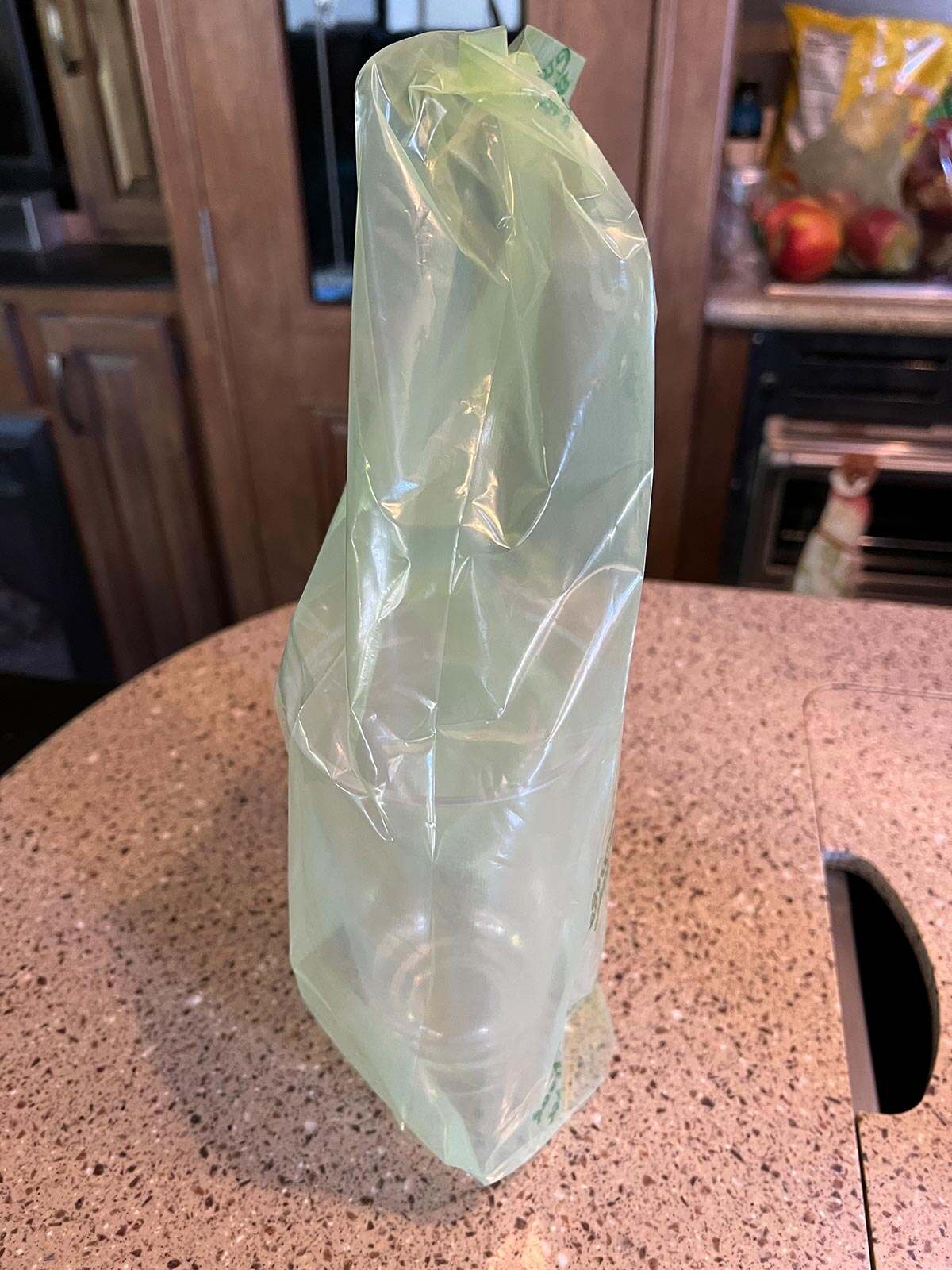
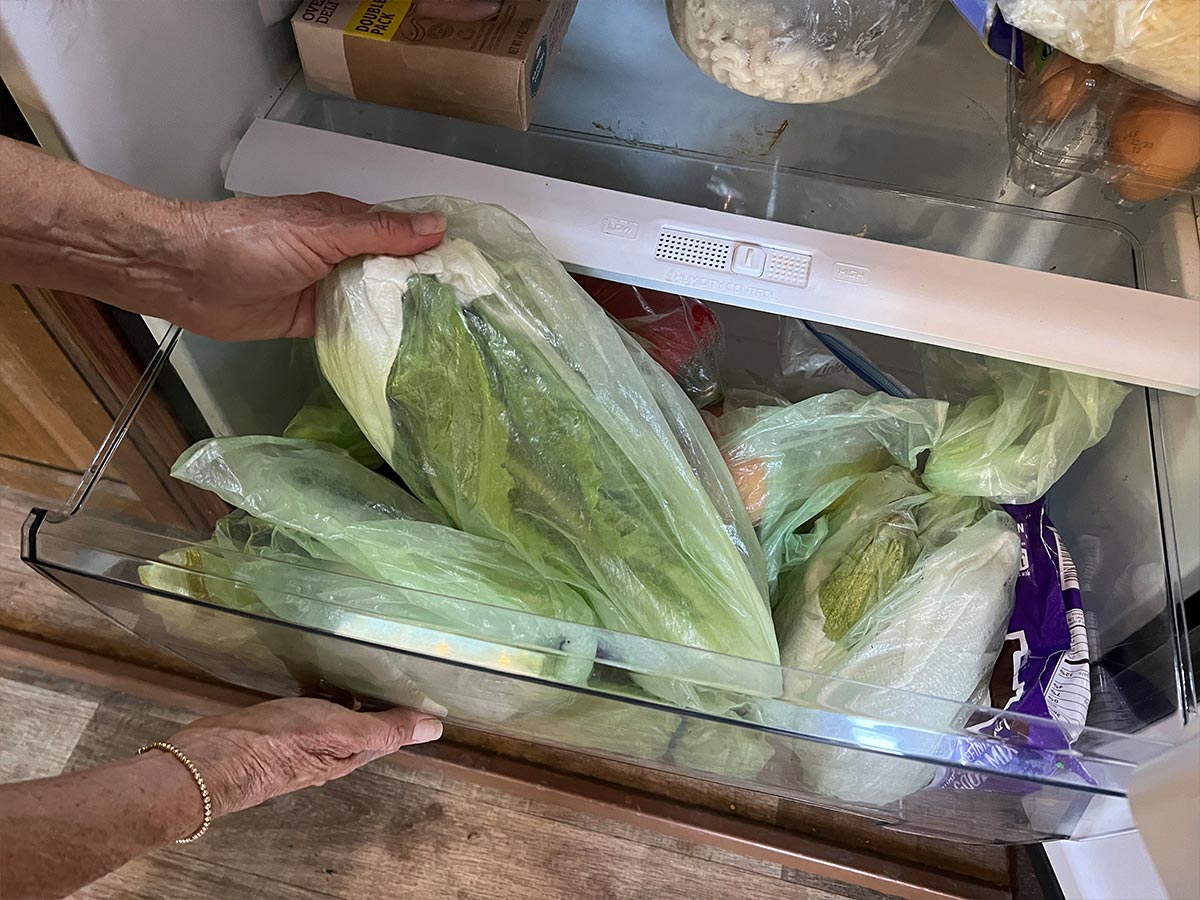
Already a Subscriber? Click here for Access to the Full Issues.

